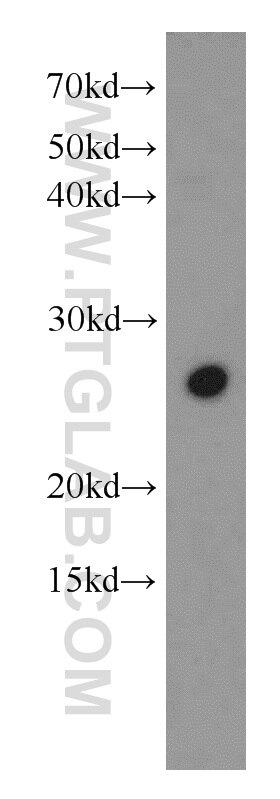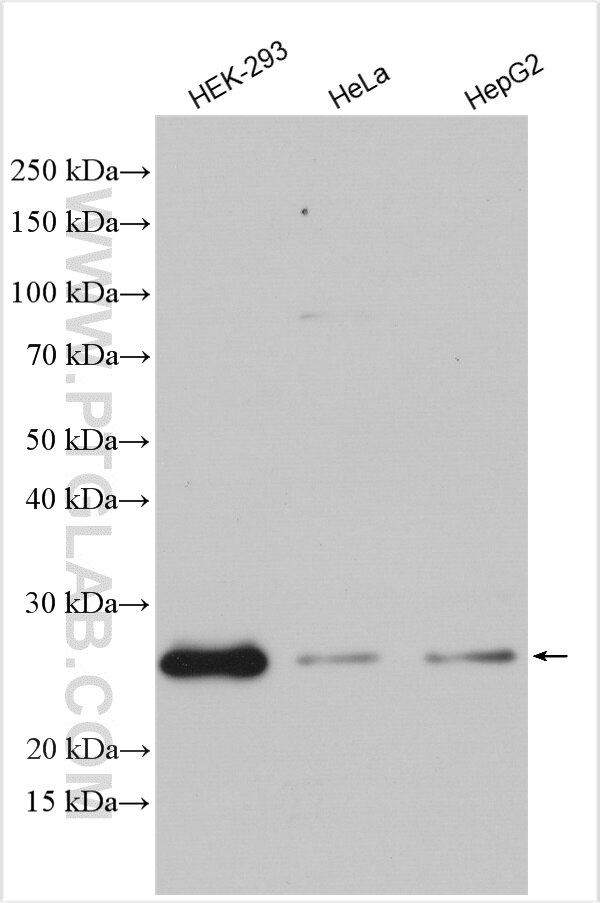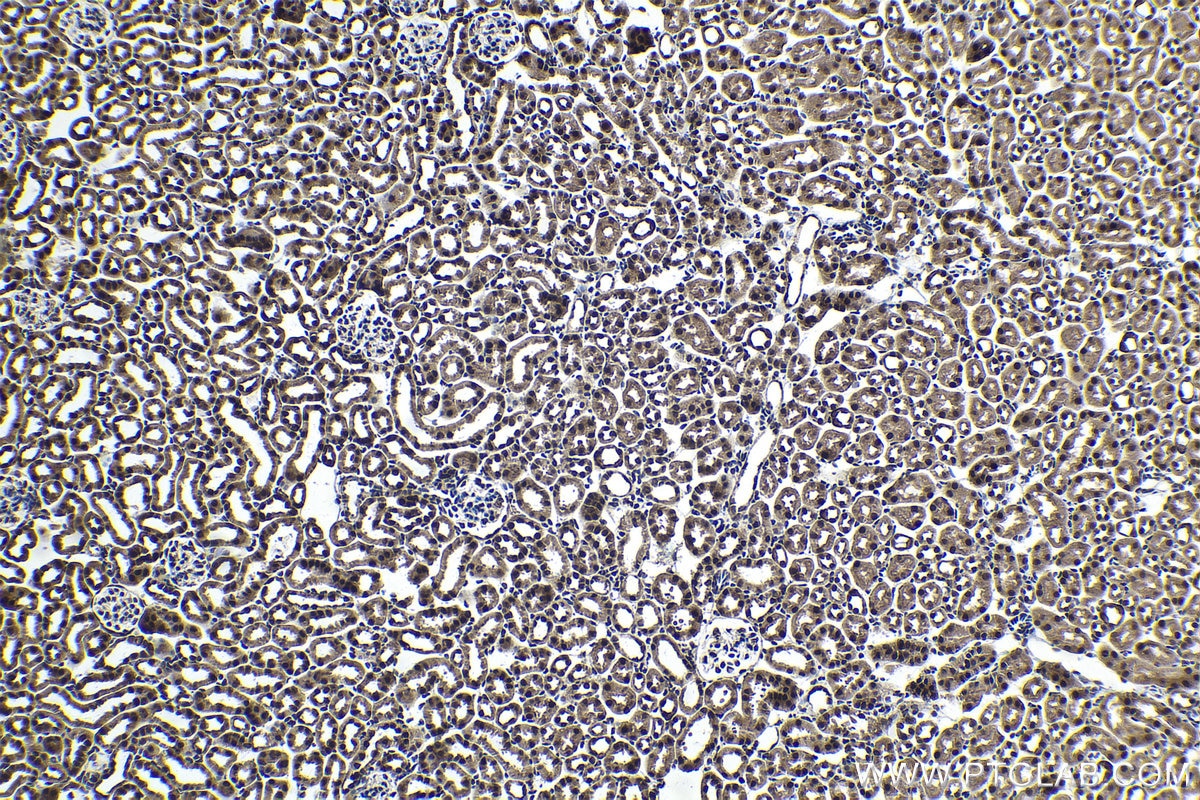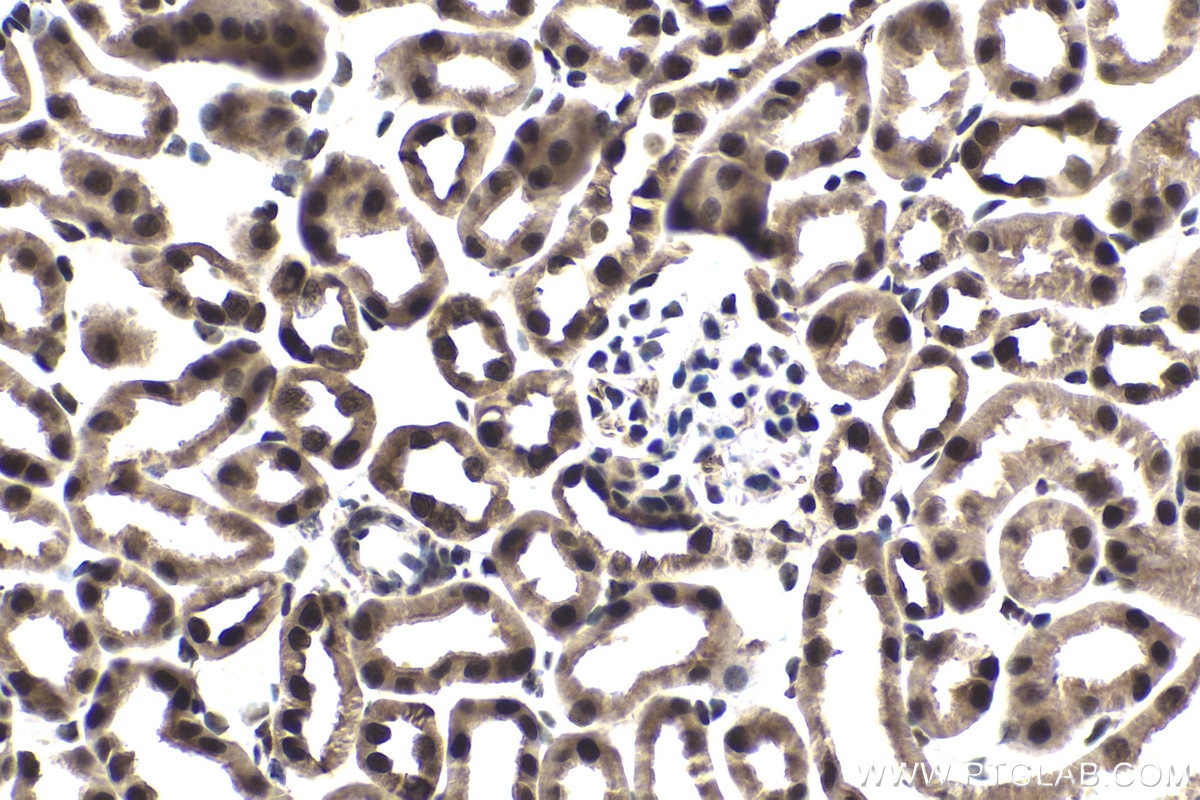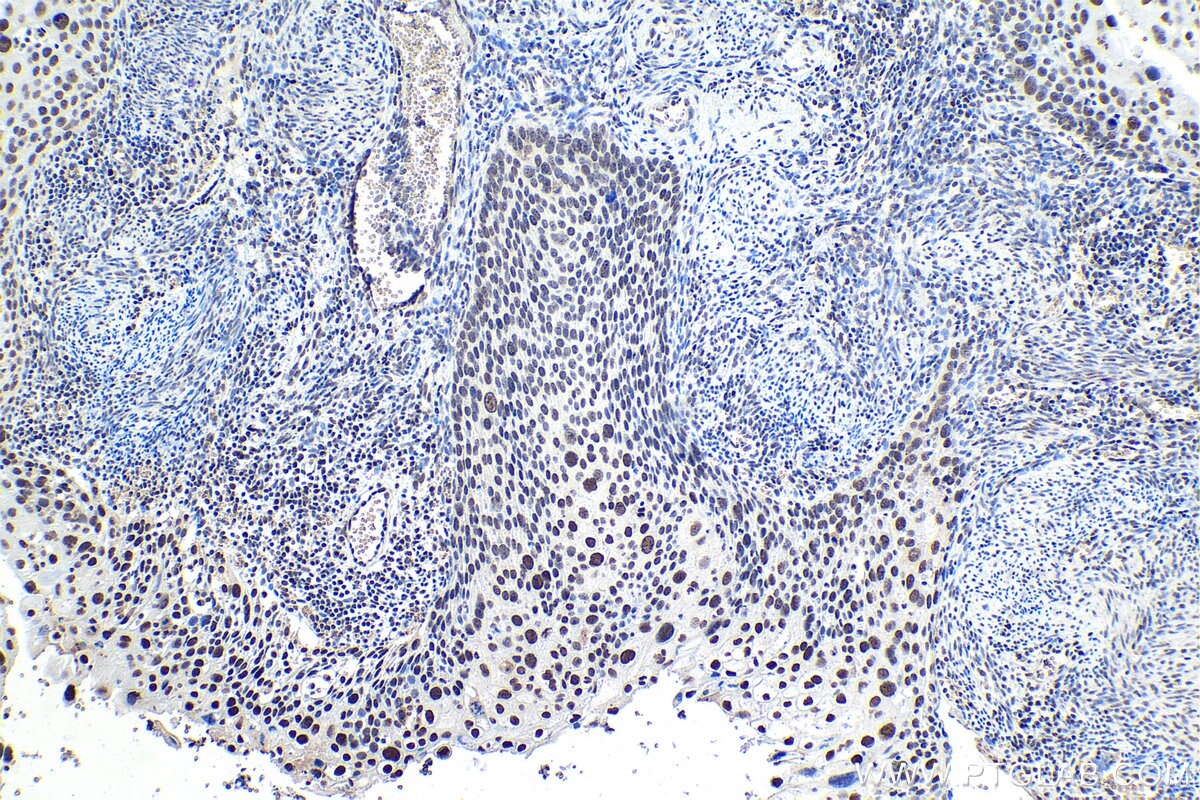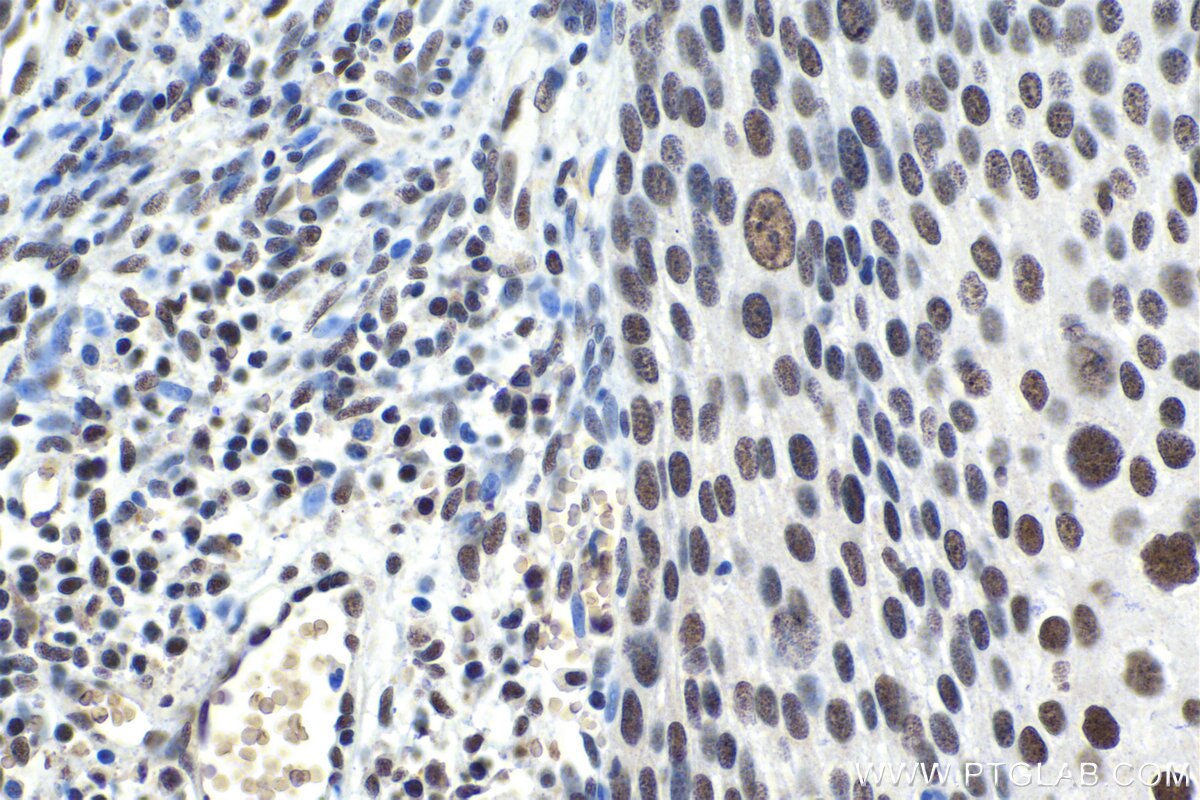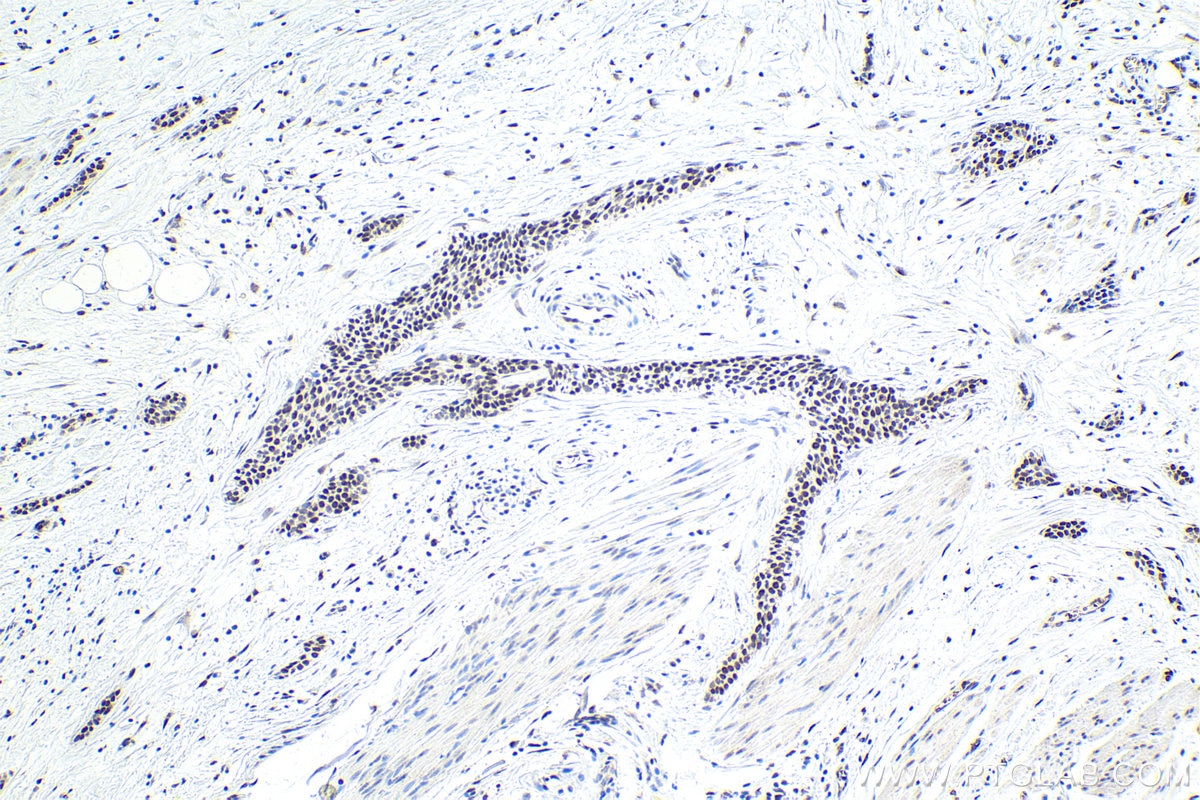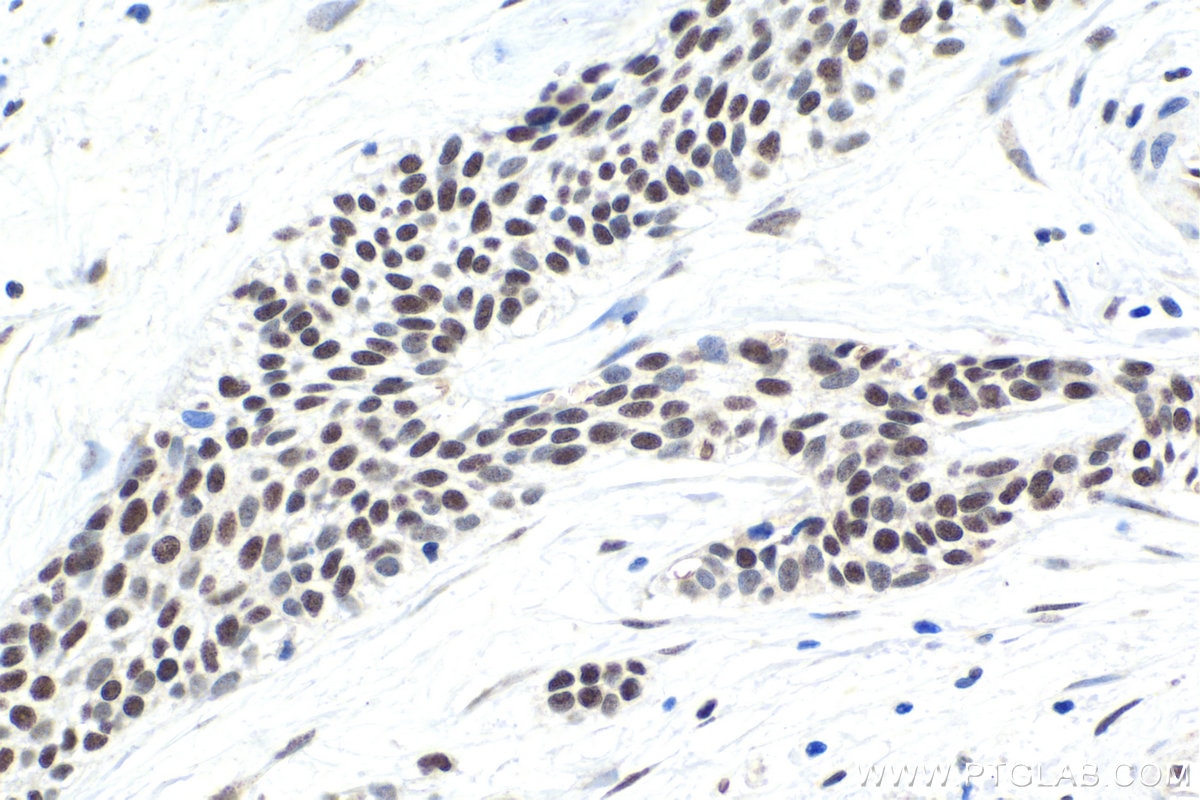Validation Data Gallery
Tested Applications
| Positive WB detected in | HEK-293 cells, HeLa cells, HepG2 cells |
| Positive IHC detected in | mouse kidney tissue, human cervical cancer tissue, human urothelial carcinoma tissue Note: suggested antigen retrieval with TE buffer pH 9.0; (*) Alternatively, antigen retrieval may be performed with citrate buffer pH 6.0 |
Recommended dilution
| Application | Dilution |
|---|---|
| Western Blot (WB) | WB : 1:500-1:2000 |
| Immunohistochemistry (IHC) | IHC : 1:500-1:2000 |
| It is recommended that this reagent should be titrated in each testing system to obtain optimal results. | |
| Sample-dependent, Check data in validation data gallery. | |
Published Applications
| KD/KO | See 1 publications below |
| WB | See 7 publications below |
Product Information
17926-1-AP targets SFRS9 in WB, IHC, ELISA applications and shows reactivity with human, mouse, rat samples.
| Tested Reactivity | human, mouse, rat |
| Cited Reactivity | human |
| Host / Isotype | Rabbit / IgG |
| Class | Polyclonal |
| Type | Antibody |
| Immunogen | SFRS9 fusion protein Ag12347 相同性解析による交差性が予測される生物種 |
| Full Name | splicing factor, arginine/serine-rich 9 |
| Calculated molecular weight | 221 aa, 26 kDa |
| Observed molecular weight | 26 kDa |
| GenBank accession number | BC093973 |
| Gene Symbol | SFRS9 |
| Gene ID (NCBI) | 8683 |
| RRID | AB_2270087 |
| Conjugate | Unconjugated |
| Form | Liquid |
| Purification Method | Antigen affinity purification |
| UNIPROT ID | Q13242 |
| Storage Buffer | PBS with 0.02% sodium azide and 50% glycerol , pH 7.3 |
| Storage Conditions | Store at -20°C. Stable for one year after shipment. Aliquoting is unnecessary for -20oC storage. |
Background Information
SFRS9 is a member of the serine/arginine (SR) splicing factor family, which contains an N-terminal RNA recognition motif (RRM), a glycine-rich region, an internal region homologous to the RRM, and a long (315-amino-acid) C-terminal domain composed predominantly of alternating serine and arginine residues. SRSF9 has been linked to the occurrence and progression of hepatocellular carcinoma (HCC), colorectal cancer (CRC) and oral squamous cell carcinoma (OSCC). In HCC and CRC, the knockdown of SRSF9 inhibited the proliferation and migration of cancer cells, cell cycle progression and colony formation of cancer cells (PMID: 34336668,35971121).
Protocols
| Product Specific Protocols | |
|---|---|
| WB protocol for SFRS9 antibody 17926-1-AP | Download protocol |
| IHC protocol for SFRS9 antibody 17926-1-AP | Download protocol |
| Standard Protocols | |
|---|---|
| Click here to view our Standard Protocols |
Publications
| Species | Application | Title |
|---|---|---|
Nat Commun Mutually exclusive acetylation and ubiquitylation of the splicing factor SRSF5 control tumor growth. | ||
Nucleic Acids Res Sequence-dependent recruitment of SRSF1 and SRSF7 to intronless lncRNA NKILA promotes nuclear export via the TREX/TAP pathway. | ||
Hum Mutat Antisense oligonucleotides modulate dopa decarboxylase function in aromatic l-amino acid decarboxylase deficiency. | ||
J Cancer Res Clin Oncol SRSF9 promotes cell proliferation and migration of glioblastoma through enhancing CDK1 expression | ||
Cell Death Dis Chemotoxicity-induced exosomal lncFERO regulates ferroptosis and stemness in gastric cancer stem cells. |
